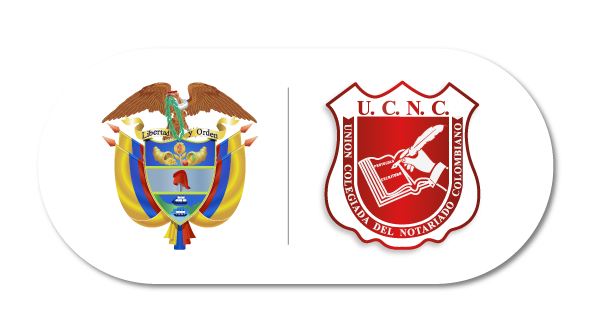The underlying mechanisms: how hypothyroidism affects the formation of common bile duct stones-a review
If you have known gallbladder disease, or a history of gallstones, please get your thyroid function tested. To give you a more accurate sense of your thyroid function, ideally include thyroid antibodies and thyroid receptor antibodies (as well as thyroid stimulating hormone (TSH), T3, and T4). Another crucial aspect of the thyroid gallbladder connection lies in how thyroid hormones affect cholesterol metabolism.
The Discovery of Hashimoto’s Disease
We conclude, that there is a gender-specific relation between hypothyroidism and cholelithiasis. Especially males with gallstones should be further examined for thyroid disorders. Further research is needed to explain the role of low serum TSH levels with respect to gallstone disease in men. Although several studies have found possible associations between hypothyroidism and CGD development, the underlying mechanism is still unclear (Laukkarinen et al., 2003; Cakir et al., 2009; Bonde et al., 2012). We conducted this study using animal models to further understand the relationship between thyroid dysfunction and CGD development. Unlike previous studies, we focus not only on the relationship between hypothyroidism and CGD, but also on hyperthyroidism and CGD.
Treatment Options for Thyroid Disorders
In some cases, people may need to take pancreatic enzymes long-term and try other things to completely resolve their symptoms. Options for pancreatic enzymes include the prescription medication Creon, Rootcology Pancreatic Enzymes Plus, and Pure Encapsulations Pancreatic Enzyme Formula. Remember that chronic fat malabsorption may result in a deficiency of essential fatty acids.
Furthermore, the change in bile composition and delayed flow can cause the liver’s cholesterol to crystallize, forming gallbladder stones, or gallstones. Specifically, many of my readers have been diagnosed with gallbladder issues, or have even had their gallbladder surgically removed. As a result, they find their ability to digest fats to be significantly impaired. These people suffer from a wide variety of symptoms, including diarrhea, nausea, belching, and stomach pain.
Treatment for gallbladder disease varies depending on the severity and type of the condition. Adopting a low-fat diet can help reduce bile production and lower the risk of gallstone formation, while regular exercise further minimizes this risk. The present study investigated possible associations between serum TSH levels and gallstone disease. There was an independent relation of high serum TSH levels with cholelithiasis among males, predominantly among those who had sonographically detected gallstones. In addition, large-scale studies should be expected to confirm synthroid awp the associations in human beings.
When your thyroid isn’t functioning optimally, it can have a ripple effect on your gallbladder. On social media, Mary empowers and informs a community of more than a quarter million patients who have thyroid and hormonal health challenges. Animals were surgically orchidectomized through gonadectomy to avoid potential interference by testosterone-involved in hormone interaction. Following anesthesia, gonadectomy was performed by a small cranial pubic incision and removal of both testicles (Gililland and Finn, 2007). Then, muscle and fascia were closed using surgical silk, and the overlying skin was sutured.
Why Are Gallbladder Problems Common In People With Hypothyroidism?
Studies have shown that when thyroid hormone levels are low, gallbladder emptying and bile flow may be impaired. Conversely, when thyroid hormone levels are high, gallbladder contraction and bile secretion may increase. Interestingly, oral contraceptive use and estrogen hormone replacement therapy have both been tied to changes in bile composition, specifically increases in cholesterol levels, which thickens the bile. This composition change is thought to contribute to the formation of gallstones. I’ve heard of increases in incidents of estrogen dominance seen after gallbladder removals, which would make sense given that the increased levels of estrogen would not be getting eliminated without sufficient amounts of bile.
Eating poorly over a prolonged period of time can definitely lead to gallbladder problems. In a randomized prospective study, Mulita et al. also found that a total of 18 out of 316 (5.7%) patients who underwent laparoscopic cholecystectomy because of cholelithiasis had hypothyroidism 31. Importantly, stress is a BIG driver of both thyroid and digestive (including gallbladder) dysfunction.
- Hypothyroidism can slow down bodily functions, leading to weight gain, fatigue, and depression.
- Hypothyroidism itself is a significantly common endocrine disorder that affects almost every nucleated cell in the body.
- This is why some people who’ve had their gallbladder removed may experience symptoms similar to hypothyroidism, even if their thyroid seems to be functioning normally.
- The conventional treatment for a gallbladder attack is often gallstone surgery.
At the end of 8th week, amorphous sandy stones were detected as surrounded by mucin gel with individual cholesterol crystals projecting from the edges. At the end of 10th week, 100% of mice (6/6) formed true gallstones that exhibited rounded contours and black centers. Some women also experience cholestasis, a reduction in bile flow, in late pregnancy. This is thought to be related to changes in estrogen and progesterone hormone levels. There can be a reduction in both the normal flow of bile (along with greater cholesterol saturation), as well as in the body’s ability to clear out hormones.
Gallstone-susceptible C57BL/6 mice, male, aged 6 weeks, were purchased from the Jackson Laboratory (Nashville, USA). The research was conducted in conformity with the Public Health Service (PHS) Policy on Humane Care and Use of Laboratory Animals. All animal handling protocols were approved by the Animal Research Ethics Committees of the Second Affiliated Hospital, School of Medicine, Zhejiang University (Hangzhou, China). Learn more about the gallbladder and how to support it in this episode of the Are You Menstrual? I also encourage people to work with a functional medicine practitioner who can best identify your unique needs on your own healing journey.
